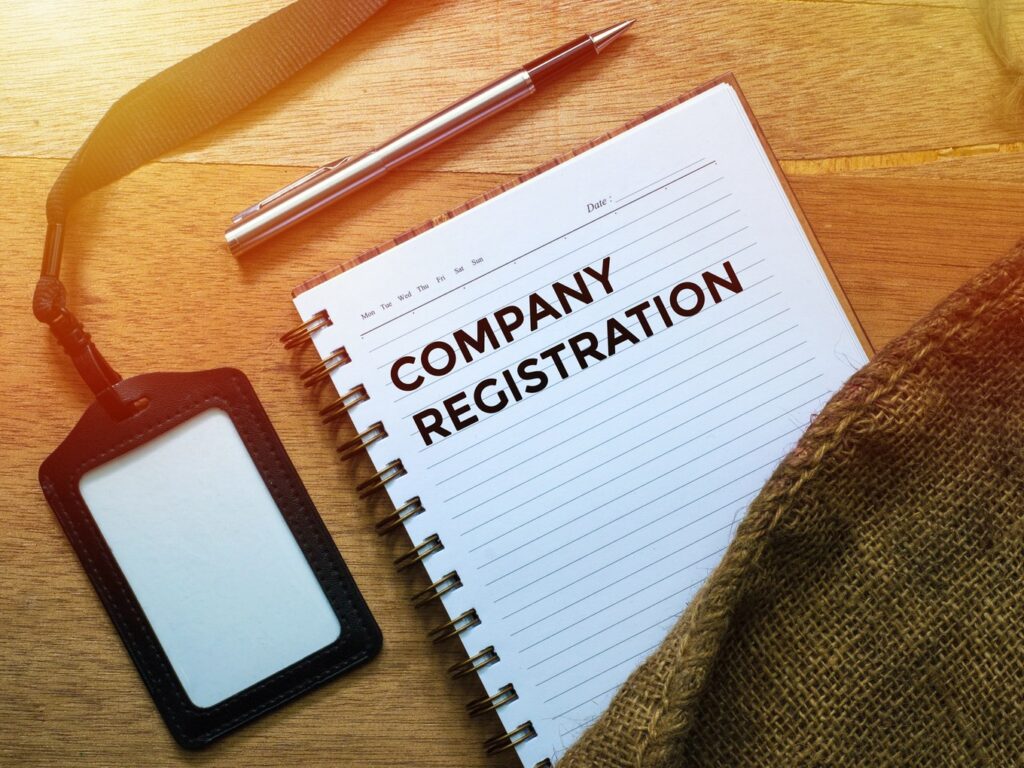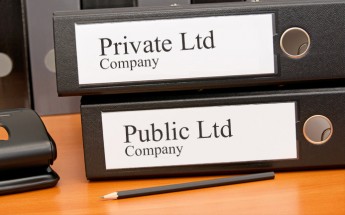Anyone can decide to start up a business whether small or big. Then comes the idea and vision and then the biggest deal of all is the name. Anyone can compete for the name until it is insured to be yours and yours alone. Your Business Name is So Important because it is everything you put out to the public. It is the first thing you sell to them.
All advertising and marketing materials will feature your business name. The first step to protecting your vision’s name is by legally protecting it. Before you start using that name, you’ll need to be sure no one else is using it by doing research on your business name. Registration of your business name could take two different forms:
- You can register the name if you are thinking about starting a business that has been given a name but are not yet sure what legal form it would take, why not go ahead and register it. You can always set up to change your mind later, but the registration process will save your name so no one else can use it.
- You can also register the name with the state if you are forming a sole proprietorship, because sole proprietorships aren’t registered in any other way.
Your business name can also be that spontaneous that you want to make sure it is not used by any other person, you can decide to trademark your business name. It’s best to create your name in graphic form as a logo, in order to make the trademark more secure.
When it comes to making sure that business has a backup system and tendency for longevity, asides from finance which is one necessity of any business, you need to get your business registered. When a business is registered, it gets an Employer Identifying Number (EIN) with the IRS of the state in which they are established as a business.
Formal business registration with the local government or state is not necessarily required for making a business transaction, but is necessary in protecting its rights and you get to hire full-time employees and pay them in accordance to state laws. SBA helps in directing you in choosing the right business registration.
It has marketing and legal advantages. In some countries, you have to be a citizen or at least up to 18 years of age to register a business. While some countries do not follow this pattern. To transact a business, most client’s demands the company’s account because it is more reliable and any fraudulent activity can easily be reported and traced.
To open a business account, you will have to provide proof that your business is a properly registered business with the state in which SBA has provided a guide for opening such business accounts. Whether small or big businesses, it deserves a professional operation where one has to separate business from personal activities.
Investors want to know that your business is organized, exists legally and is separate from your personal life and finances. In the business world, no investor would take you seriously if you are asking for investment but your business is not registered.
Some of these investors see it as lack of professionalism. Establishing customer’s trust highlights the importance of registering a business.
That is not the impression you want to give out, whether first or second impression. It already says a lot about you. So many business owners who regard themselves as entrepreneurs do not own a registered business. Registering your business depends on the country and the type of business you want to register.
It is very possible that you are building something that would turn out to be big later in future. The truth is, you may be building something that could become very big and popular in the future. However, if you don’t do something as basic as registering your business, all your hard work could easily be wasted, or worse, taken over by somebody else.
There are agencies that handles these types of registrations and may be established under different names but their duties are essentially the same, depending on the country you are based. It is important to find the right one.
Depending on the laws of the country and the requirements of the relevant government department. Some countries do not need to hire anyone to register your business where you can log on to a website by yourself and acquire your registration. While some other countries require that seeking the aid of professionals who can legally handle these registrations.
You might be wondering how long this process could take. Well, it depends on the continent or country but if the necessary document required for the processing is complete, it would not take long before the registration is complete. When most clients/ customers approach a business, they want to know how responsible the business owner is.
We have had cases of fraudulent activities that have led many to drop out of the business market but in a case of a registered business, there is a level of seriousness spelled out to them. It looks more professional. Only Registered businesses are allowed to handle receipts. Customers would never transact a business without a receipt, in case of future issues where they have to present the receipts for proof.
It gives your business a sense of professionalism. The only exception is if you plan for your business to remain a petty trading business that sells stuff off street corners, you just have to register it to attract more discerning customers.
It is necessary to ensure continuity
I am sure you have heard of big multi-billion-dollar businesses like Samsung, Apple, Ford motor company, Chevron Corporation and many more started as small establishments which grew to be successful businesses today.
Some of these business owners are even dead but the businesses have lasted long. This is the power of continuity. Even when the people die, the business and the brand has the ability to outlive the individual and can be transferred through persons from generation to generation. Registering will help you achieve the dream of continuity.
- You will be giving your business a unique identity
Whichever name you and whatever angle you decide to take your company to totally depend on you. Registering it makes it legally yours, under your name. Customers and clients, especially people you’ve never worked with before, need assurance that you are a legitimate business
- Registered businesses have the opportunity to get bank credit and investment from investors
To qualify for a business loan, the Number 1 and non-negotiable requirement is that your business must be registered and for investors, it’s the same thing. For banks loans, there are two categories which are Business and Personal loans. They are both different. Most banks will lend you money to buy a new car or house but will not give you money to fund a business that is not registered.
Lenders and investors will ask to see your business registration along with other application requirements before approving you for a loan. For Investors, it is difficult to release funds to a non-registered business, it almost seems like you are requesting the investment to fund your personal lifestyle. If you apply for a credit card as a business, creditors may also ask to see your registration paperwork.
- You get protection on your personal liability
With no legal protection of limited liability, you stand to lose your business if anything goes wrong. For example, in a case where your business is being sued for a heavy damage, you might end of losing half or all of your business. If the bank lends money to a business with limited liability, it can only recover the funds from the assets of the business. In ideal cases, the bank cannot touch the personal assets of the owner of a limited liability business.

There are lots of benefits to limited liability. In a case where there was a huge damage from the end of your business, if your business is registered as a limited liability entity, the worst that could happen is that your business will be the one responsible for paying the damages because it is a separate entity from you, but an unregistered business is not completely safe from this because the owners might end up having to settle law suits, damages and other costs with their personal properties.
- Access to proper employee recruitment and Proper tax documentation
After registering your business, you get an identification number that would allow you route state taxes on behalf of all your employees. That is why for a starting business, it is best to register the business first before taking on a major recruitment process. It ensures the legitimacy of the business entity as a legal and tax-status operation while ensuring compliance with legal standards for bookkeeping and accounting.
There will be proper documentation that the business is paying taxes and employees are also given adequate insurance care. There are also many tax benefits to registering a business.
You will be putting your business on the map by this act. Did I mention that many companies use their business name as their domain name for the company website?
STEPS TO TAKE
Once you’re ready to register your business, the first thing the Business Registration Office does is to check that no other business already exists with the same name to avoid confusion in public, because you will be committing a crime yourself by bearing another company’s name who is already registered.
The law protects the other company’s rights. Once it is confirmed that the name has not been registered by another business or the business being already registered, you can as well consider it your own. The registration can then follow through.
After the registration has taken effect, it is your choice to do anything with the liberty. You can decide to make a business logo, letterhead papers for official businesses and also business cards for easy contact. If you plan to try to get government contracts for your company, a business registration is one of the first requirements.
TYPES OF BUSINESS ENTITIES
Before we go into the business entities, you have to understand the term ‘limited liability’ which will further allow us differentiate the business entities but not all types of registered business entities enjoy limited liability. With this limited liability, your personal assets (house, land, car etc) are protected from any claims.
However, under a limited liability arrangement, the amount of money you can ‘lose’ is limited to a fixed sum (which is usually the amount of money you invested in the company). It is very important that you know the types of business entities that exist and the difference between them so you have an idea on the right type of business registration that suits your circumstance.
PARTNERSHIP
Usually, this type of business entity is managed or owned by a minimum or two persons or more as the case may be. They do not also enjoy limited liability. You should take note that this does not apply to Limited Liability Partnerships. However, in many countries, there are Limited Liability Partnership arrangements which limit the liability of the owners to their investment in the partnership.
SOLE PROPRIETORSHIP
This is the simplest of all business entities because they are quite cheap and one can easily set it up but having a downside. The downside of this type of business is its unlimited liability making the owner of this type of business the one to bear all the risk alone and may be personally liable to repay any debts the business has incurred.

One can also call it sole trader or a proprietorship (one man business) is a type of business entity that is owned and operated by one person (usually owned by small/petty) traders but does not enjoy the benefits of limited liability with no legal distinction between the owner of the business and the business itself. Usually, the law would consider the owner and the business are as same. There is no possibility of continuity after the demise of the owner.
PRIVATE LIMITED LIABILITY COMPANY
You can call it the most common type of business and they usually ends with ‘Ltd’, ‘Limited’ or ‘Inc’ depending on the country and legal system and a bit more expensive to set up than sole proprietorships but the benefits are surely worth the expense.
The owners of this type of business entity enjoys limited liability, this is perfect for the modern-day entrepreneur who wants to start a business and grow it into something big. It is suited for all kinds of industries like the professional services, agricultural establishments and manufacturing companies.

The law considers the Limited Liability Company as a legal human being. They are permitted to own properties, borrow and lend money, sue and be sued. Just because it exists on its own, it can be sold or transferred to persons if the owners /shareholders decide to hand over ownership.
PUBLIC LIMITED COMPANY (PLC)
It is considered almost similar to a private limited liability company but can be costlier to establish than all other types of entities. The difference between them is that they are publicly owned. They are the only type of entity that can sell their shares on a stock exchange where anyone can buy and sell their shares.
Some companies begin from owning private limited liability companies before moving it to a public limited company. In some countries, they refer to the public limited company as ‘PLC’ in some countries.
Have you been able to decide what you want for your dream? You do not have to be limited to little. Dreams are achieved by action and positive outcomes by the right action. The step you take today will determine the length you want your business to get to.
